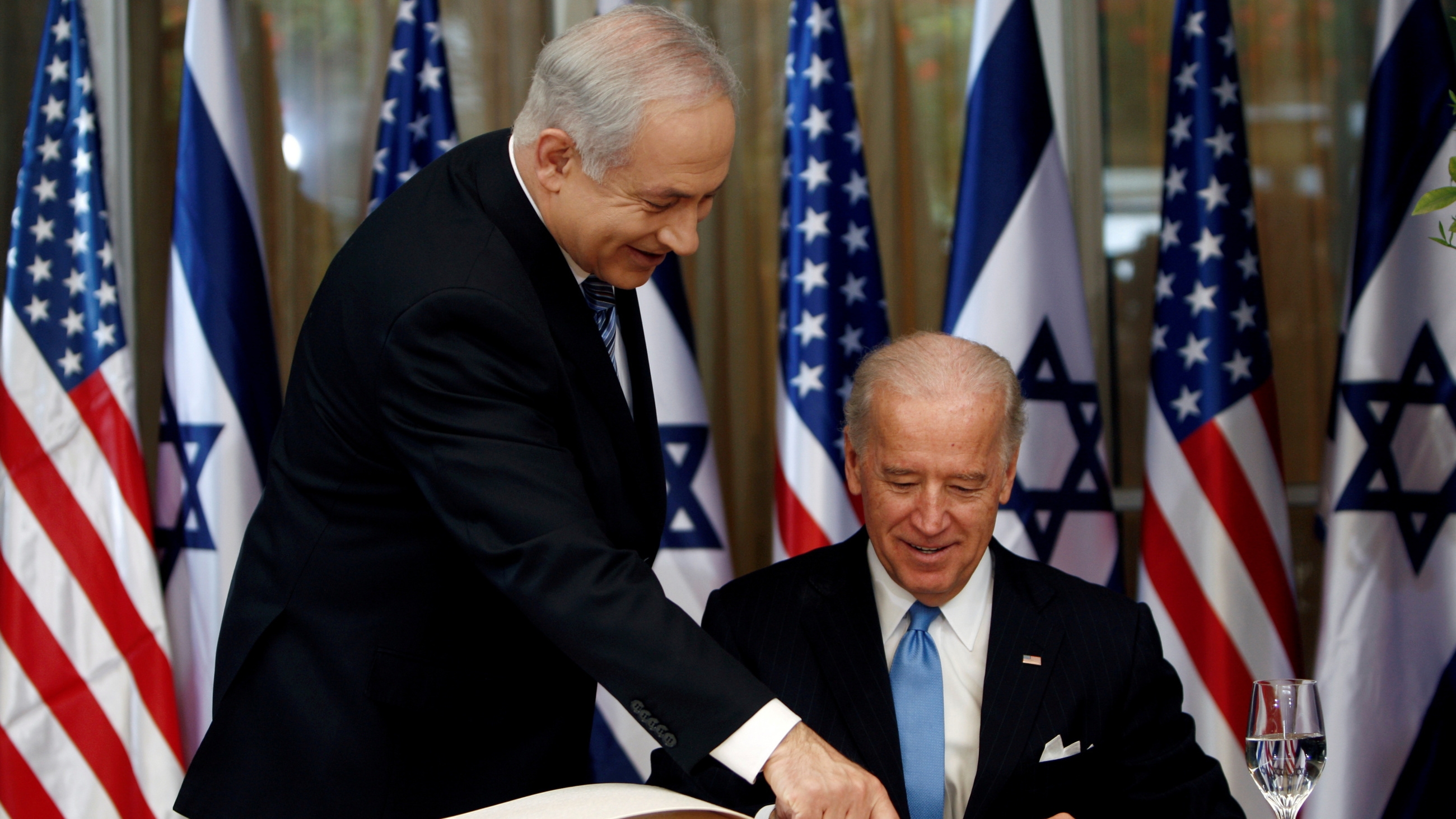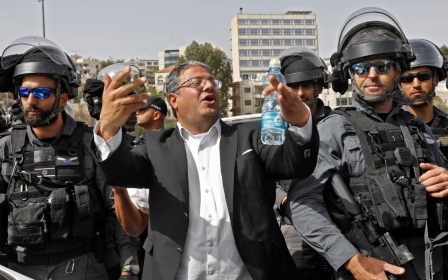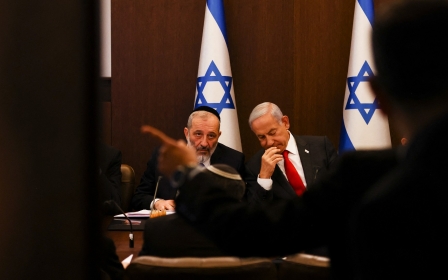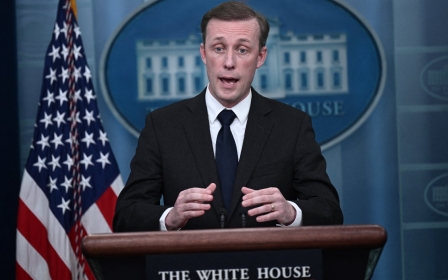Israel's greatest threat in 2023 is 'breakdown of relations with West': Report

The biggest strategic threat currently facing Israel is a deterioration in its foreign relations, particularly with the United States, mainly due to the new government’s attempts to weaken the judiciary, a leading Israeli security think tank has warned.
Every year, the Institute for National Security Studies releases a report detailing what it deems to be the greatest threat Israel is facing. In previous years the renowned institute, affiliated with Tel Aviv University, has cited Iran, the Syrian war, and Hezbollah's precision missile project.
This year, its annual assessment, released on Monday, warned that Prime Minister Benjamin Netanyahu's far-right government may take measures that will be perceived by the West as damaging to democracy, which could endanger Israel’s relations with Washington and its security in the long run.
The report said the government’s attempts to weaken the judicial system will increase polarisation within Israeli society, consequently weakening social resilience - "a critical component in Israel's ability to cope with external threats".
In early January, the new government, the most right-wing in Israeli history, laid out plans to overhaul the judicial system.
New MEE newsletter: Jerusalem Dispatch
Sign up to get the latest insights and analysis on Israel-Palestine, alongside Turkey Unpacked and other MEE newsletters
If implemented, the reforms are expected to weaken the judiciary, which Netanyahu and his coalition of far-right and ultra-Orthodox parties accuse of advancing a left-wing agenda through key court rulings.
Massive protests
The planned reforms, which have sparked massive protests in Tel Aviv and Jerusalem, would also leave the door open for the government to quash corruption charges Netanyahu is facing.
Meanwhile, tensions between the judiciary and the government have escalated in recent days following a Supreme Court ruling that disqualified Aryeh Deri, Israel's interior and health minister, from holding political office over past criminal convictions.
Deri is one of Netanyahu's closest and most experienced allies and played a central role in his return to power.
The INSS report said the judicial crisis and attempts to pass undemocratic laws pose a significant risk to Israel’s international standing and its relations with western countries.
In the short term, it added, this imperils state security and western-Israeli regional interests.
Tamir Hayman, the managing director of INSS, said that while Israel currently "has a stronger military and international standing” than its external enemies, "2023 poses a host of challenges liable to upset this balance".
The assessment highlights the rise in competition between world powers, saying that it could force Israel to "adhere to higher norms of liberal democracy" as the US "may be less tolerant of states challenging liberal democratic values".
The report said this could be Netanyahu's most significant political challenge, and warned that any damage to relations with Washington would "directly impact Israel's management of other fronts".
Hayman advised Israeli politicians against "moves perceived as damaging democracy or changing the relationship with the Palestinians, as well as steps that appear insufficiently aligned with the US and the West pertaining to China and more specifically, Russia".
Meanwhile, the INSS assessed the most urgent threat to Israel as the possibility the Palestinian Authority (PA) may collapse. The PA administers the occupied West Bank alongside the Israeli military.
"The continued existence of the Palestinian Authority, despite its drawbacks, is clearly in Israel's interest," Hayman said.
"The end of the era of [Palestinian President] Mahmoud Abbas as PA chairman against a backdrop of growing discontent and frustration among the [Palestinian] youth" could lead to an upsurge in violence in the absence of a solution, he said.
The report found the "most extreme" threat facing Israel remains Iran.
As the West's attention has veered from the Middle East towards Russia and China - especially since the Russian invasion of Ukraine - Israel, and other regional powers, have been left to confront the Iranian nuclear and security threat alone, according to INSS.
Commenting on the institute’s findings, President Isaac Herzog said: "The most worrying front is the one the report refers to as ‘the internal front.’ Israel’s security is closely bound with its national resilience."
This article is available in French on Middle East Eye French edition.
Middle East Eye delivers independent and unrivalled coverage and analysis of the Middle East, North Africa and beyond. To learn more about republishing this content and the associated fees, please fill out this form. More about MEE can be found here.





